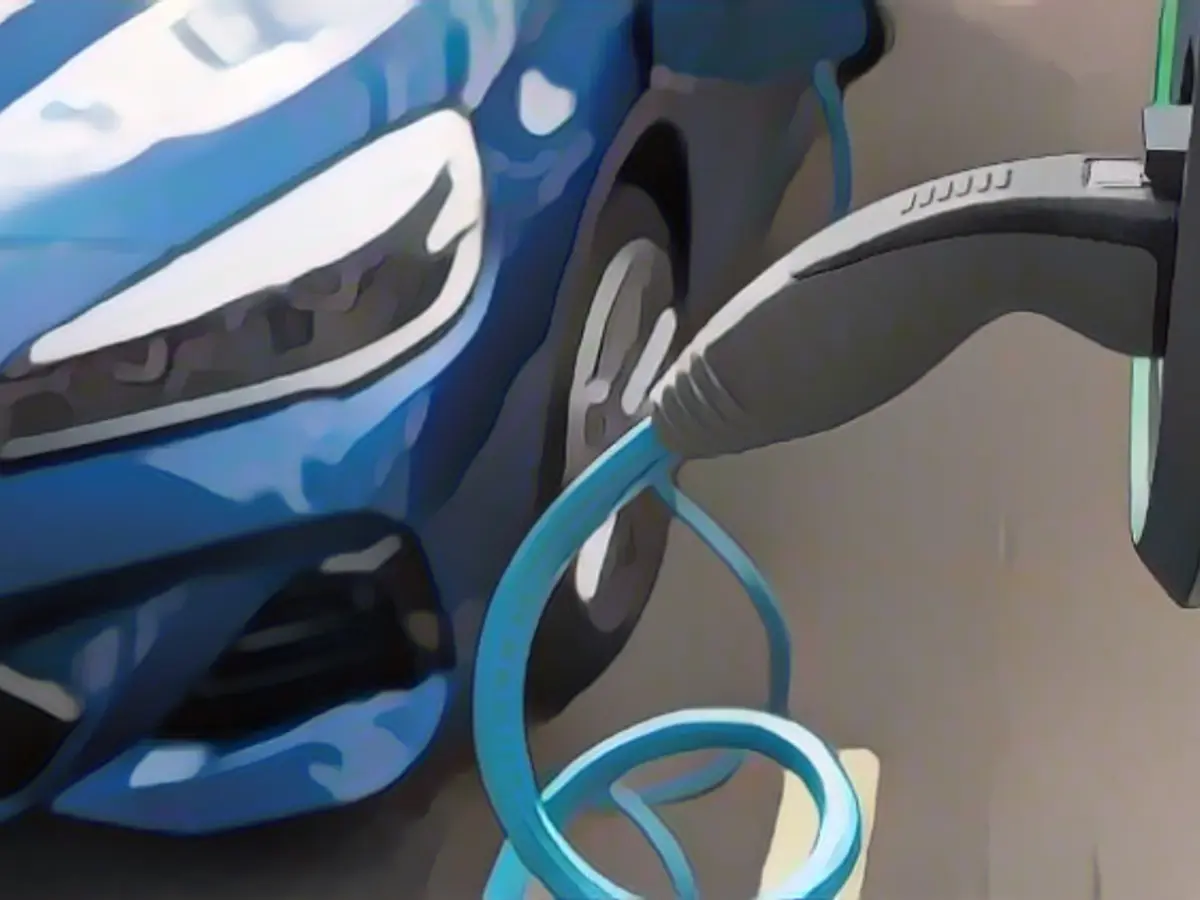Will Automakers Save the Day for Electric Car Buyers?
In a surprising turn of events, the German government abruptly ended the state bonus for electric car purchases earlier than expected. The auto industry is fuming, with some manufacturers vowing to continue financial support during the transition period.
After the abrupt end of electric car incentives, buyers are left hanging. The industry is voicing frustration over a loss of trust in politics, anticipating a slower growth in electric car sales.
The Federal Ministry of Economics announced just over the weekend that applications for the environmental bonus could only be submitted the following day. The hasty decision was justified by the government using up all available funds, a consequence of the Federal Constitutional Court's ruling on the federal debt brake. In response, the SPD, Greens, and FDP coalition leaders agreed to phase out state funding in the near future, leaving the end date unspecified.
Earlier plans called for a purchase premium of up to 4,500 euros for new cars until year-end, with manufacturers receiving half of the bonus. Beginning January 1, 2024, the bonus would be reduced to 3,000 euros, eventually phasing out by the end of the year. However, these plans have now been rendered obsolete.
The issue lies in the fact that the bonus is only paid upon vehicle registration, not purchase. Orders sometimes take weeks or even months to be fulfilled, leaving customers stuck in a predicament.
Consumers' Trust Undermined
Hildegard Müller, President of the German Association of the Automotive Industry (VDA), criticized the government for denying support to consumers who held onto their promised registration date for electric cars. According to Müller, this action is detrimental to consumer trust in the reliability of politics.
The Federal Association of Consumer Organizations (vzbv) urged the government to reassess individual cases to see if the contract allows for a buyer's withdrawal.
Shopping Til' Registration Date
Some car manufacturers, like Stellantis and Hyundai, are stepping up to maintain the purchase premium for a limited period. Stellantis will guarantee a full premium of up to 6,750 euros for electric vehicles eligible under previous guidelines until the end of the year. Moreover, the carmaker will accept the original, reduced premium of up to 4,500 euros for e-vehicles already ordered and registered by their owners by February 2024.
Hyundai is still working to honor its environmental bonus for e-car customers who signed contracts by December 17, 2023.
Trust in Politics Hits Rock Bottom
Audi and BMW have expressed disappointment over the sudden end of environmental bonuses, affecting their customer base. Others, such as Porsche, are moving on, focusing on combustion engines and plug-in hybrids.
Politicians planning on budget negotiations are expected to offer a commitment to supporting electric mobility and compensating affected customers.
Also Read:
The German Association of Automobile Manufacturers (VDA) represents brands like Volkswagen and Audi, expressing concern over the loss of consumer trust due to the sudden end of electric car subsidies. Stellantis and Hyundai are attempting to alleviate this by continuing to cover the electric vehicle purchase premium for eligible cars until year-end.
Despite the government's decision, several car manufacturers, including Audi, are considering offering discounts or goodwill arrangements to support electric car sales.
Source:
Additional Insights
- Declining EV Sales: The withdrawn incentive led to a decline in electric vehicle registrations in 2024, particularly following the abrupt cutoff in December 2023.
- Investment Adjustments: Companies like Volkswagen and BMW are adjusting their investment strategies, such as expanding their presence in China and boosting electric vehicle production.
- Shift in Manufacturing Focus: Porsche's investment in combustion engines and plug-in hybrid models underscores manufacturers' decision to extend the lifespan of gasoline-powered vehicles due to insufficient demand for electric vehicles.
- Government Advocacy for Electric Vehicles: Political parties are pushing for reviving electric vehicle sales by advocating for tax incentives and encouraging private sector involvement in charging infrastructure development.
- Privatization of EV Support: Some lawmakers are advocating for privatized solutions to address the shortcomings of government support, with Daniela Kluckert emphasizing strategic distribution of charging infrastructure and simplified payment processes.




